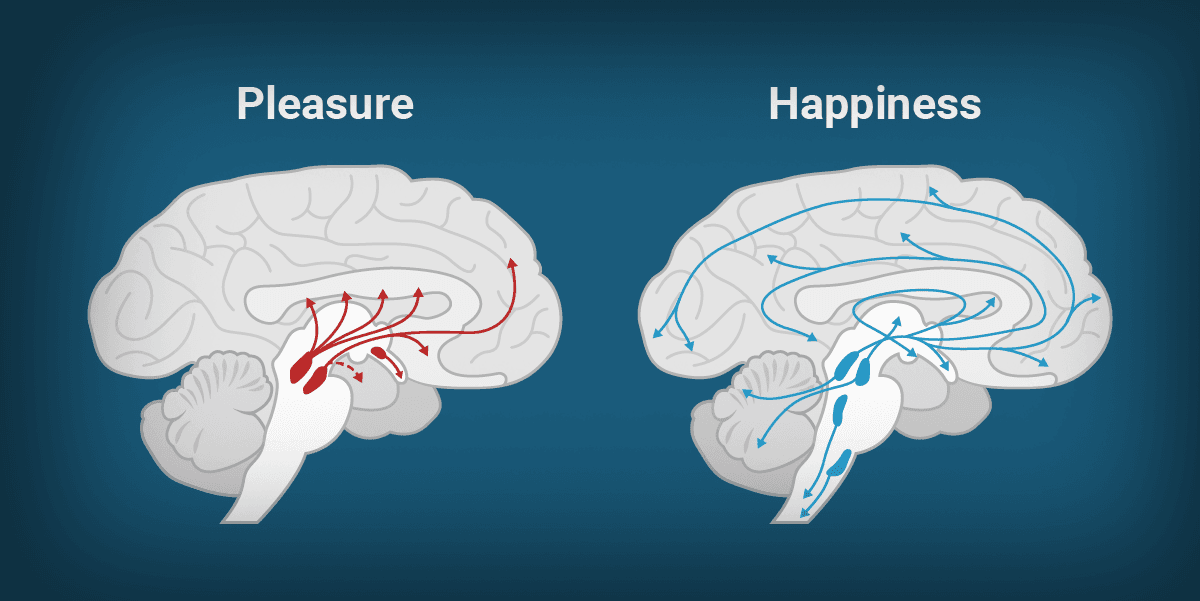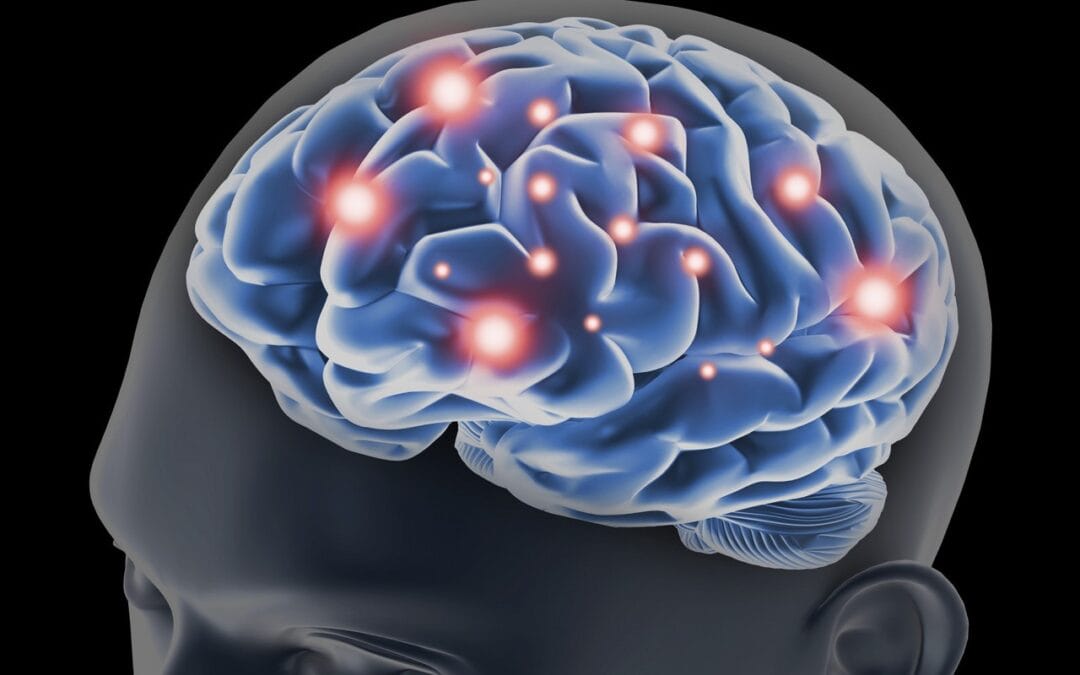Exploring the Role of Dopamine and Serotonin in POIS: Understanding the Brain’s Chemistry
The brain’s chemistry plays a crucial role in our overall well-being, and it is believed that the balance of neurotransmitters, such as dopamine and serotonin, may be linked to Post-Orgasmic Illness Syndrome (POIS). In this post, we explore how these two key chemicals—often called the “feel-good” neurotransmitters—impact individuals with POIS and why imbalances might be at the root of some symptoms. Understanding the complex interaction between dopamine, serotonin, and the body’s response to sexual activity could hold important clues to managing this condition.

Introduction: What Are Dopamine and Serotonin?
Dopamine and serotonin are two of the most important neurotransmitters in the brain, often referred to as the brain’s “feel-good” chemicals. They are responsible for regulating mood, emotions, pleasure, and various bodily functions.
-
Dopamine is primarily associated with feelings of pleasure and reward. It plays a key role in motivation, attention, and movement. Whenever we experience something enjoyable, such as eating a delicious meal or achieving a goal, dopamine is released in the brain, making us feel satisfied and motivated to repeat that behavior.
-
Serotonin is linked to mood stabilization and happiness. It affects not only mood but also sleep, digestion, and overall well-being. Adequate levels of serotonin are crucial for maintaining a balanced emotional state and preventing mood disorders like anxiety and depression.
Both of these chemicals are integral to how the body and mind respond to physical and emotional experiences, including sexual activity. However, in individuals with POIS, an imbalance in dopamine or serotonin could potentially contribute to the onset of symptoms. This post will delve into how these neurotransmitters might be connected to POIS and what ongoing research reveals about their role in this condition.

The Connection Between Neurotransmitters and POIS
POIS is a complex condition, and while research is still in its early stages, there is increasing interest in how brain chemistry may influence its symptoms. Given that dopamine and serotonin are both closely linked to mood regulation, pleasure, and physiological responses, an imbalance in these neurotransmitters could provide clues to why individuals with POIS experience such debilitating symptoms after sexual activity.
Dopamine and POIS: How It May Impact Symptoms
Dopamine is released during and after pleasurable activities, including sexual intercourse. This neurotransmitter is responsible for the “reward” sensation we feel after such activities. However, some individuals with POIS may experience a rapid depletion of dopamine after orgasm, leading to a sudden drop in mood, energy, and well-being.
Here are some ways dopamine might play a role in POIS symptoms:
- Post-Orgasmic Dopamine Crash: In a healthy brain, dopamine levels rise and fall naturally. But for those with POIS, this fall might be steeper or faster than normal, causing extreme fatigue, lack of motivation, and depressive symptoms shortly after orgasm.
- Dopamine Dysregulation: Some individuals with POIS may have an inherent difficulty regulating dopamine production. This means their brain may not produce enough dopamine after orgasm to counteract the energy and mood depletion that typically follows sexual activity.
- Mood Swings and Dopamine: As dopamine plays a critical role in regulating mood and pleasure, individuals with POIS may experience heightened mood swings, feeling elated before orgasm and then suddenly experiencing anxiety, depression, or emotional instability afterwards.
Serotonin and POIS: A Possible Role in Mood and Fatigue
Serotonin plays a crucial role in managing mood, emotional responses, and sleep cycles—all of which can be disrupted in individuals with POIS. Here are some ways serotonin may influence POIS symptoms:
- Mood Stabilization and Serotonin: In individuals with low serotonin levels, the ability to regulate mood after orgasm may be compromised. This can lead to feelings of irritability, sadness, or depression, as serotonin depletion may contribute to emotional lows.
- Serotonin and Fatigue: Serotonin also regulates sleep, and disruptions in its balance could cause POIS sufferers to feel extreme fatigue, insomnia, or disrupted sleep patterns after orgasm. Low serotonin levels might exacerbate the feelings of lethargy and exhaustion often reported by those with POIS.
- Digestive Impact: Interestingly, serotonin also affects digestion, and those with POIS sometimes report gastrointestinal issues such as stomach pain, bloating, or nausea after sexual activity. Serotonin imbalances might contribute to these digestive disturbances, as the neurotransmitter helps regulate gut function.
Understanding the Dopamine-Serotonin Balance in POIS
A balanced relationship between dopamine and serotonin is essential for emotional well-being and healthy bodily function. In POIS sufferers, this balance might be disrupted, leading to a cascade of symptoms. Researchers hypothesize that:
- Dopamine vs. Serotonin Imbalance: Some individuals may have an imbalance where dopamine is overactive while serotonin is underactive, or vice versa. For example, dopamine may provide a short-lived feeling of pleasure after orgasm, but serotonin depletion could leave the individual feeling emotionally drained and physically exhausted soon after.
- Interaction Between Dopamine and Serotonin: These neurotransmitters work together in many processes, and disruptions in one can often affect the other. For example, low serotonin levels may cause poor sleep, which in turn affects dopamine production, exacerbating feelings of low motivation, fatigue, and mood instability in those with POIS.
Research on Neurotransmitters and POIS: What We Know So Far
While the connection between dopamine, serotonin, and POIS is still under study, there are a few promising avenues of research:
-
Hormonal Influence on Neurotransmitters: Some studies suggest that hormone imbalances in individuals with POIS may affect neurotransmitter production, particularly after orgasm. The depletion of hormones like testosterone or cortisol may contribute to the sudden drop in dopamine and serotonin levels, leading to symptoms such as fatigue, anxiety, and mood instability.
-
Potential Therapies Targeting Neurotransmitters: Some treatment options are being explored that focus on balancing dopamine and serotonin levels. This could involve medications that boost serotonin levels (such as SSRIs, commonly used for depression) or supplements that enhance dopamine production. However, more research is needed to determine the efficacy of these treatments specifically for POIS.
Treatment Implications: Managing Dopamine and Serotonin in POIS
Since imbalances in dopamine and serotonin may contribute to POIS symptoms, managing these neurotransmitters can be an essential part of treatment. Here are some potential approaches to help regulate dopamine and serotonin levels:
-
SSRIs (Selective Serotonin Reuptake Inhibitors):
SSRIs are medications commonly prescribed for depression and anxiety. They work by increasing the amount of serotonin available in the brain, which can improve mood stability. For individuals with POIS, SSRIs may help reduce feelings of anxiety or emotional discomfort that occur after orgasm. While these medications are typically used for mental health conditions, they can also assist POIS sufferers by managing some of the mood-related symptoms. -
Dopamine-Boosting Activities:
Engaging in activities that naturally boost dopamine can help counteract feelings of fatigue or lack of motivation, which some POIS patients experience. Activities like regular exercise, listening to music, engaging in creative hobbies, or achieving small goals can naturally increase dopamine levels. These practices help create a sense of accomplishment and pleasure, which may alleviate some of the low-energy or depressive symptoms that can come with POIS. -
Dietary Support for Neurotransmitters:
Certain nutrients are crucial for producing and maintaining healthy levels of dopamine and serotonin. A diet rich in omega-3 fatty acids (found in fish, walnuts, and flaxseeds), magnesium (found in leafy greens, almonds, and bananas), and B-vitamins (found in whole grains, eggs, and meat) can support neurotransmitter health. By incorporating these foods into their daily meals, POIS sufferers may promote a better balance of these important brain chemicals, potentially reducing symptoms over time. -
Stress Management Techniques:
High stress levels can deplete both dopamine and serotonin, making POIS symptoms worse. Incorporating relaxation techniques like meditation, deep breathing exercises, or mindfulness can help manage stress and support neurotransmitter balance. These techniques not only calm the mind but can also positively affect the body’s chemical reactions, reducing the likelihood of post-orgasmic flare-ups. -
Adequate Sleep:
Sleep plays a vital role in regulating dopamine and serotonin levels. Poor sleep can disrupt the balance of these neurotransmitters, worsening mood and energy levels. Ensuring a regular sleep schedule, creating a restful bedtime routine, and aiming for 7-9 hours of quality sleep each night can help support the brain’s chemical balance and improve overall well-being for POIS sufferers.
Each of these strategies can contribute to a better management plan for POIS, helping to alleviate symptoms and improve quality of life through the regulation of dopamine and serotonin levels.
Conclusion
The interplay between dopamine, serotonin, and POIS is a promising area of research, with growing evidence suggesting that imbalances in these neurotransmitters may contribute to the condition’s symptoms. While more research is needed, understanding how dopamine and serotonin affect the brain and body could open up new treatment avenues for individuals with POIS. Managing neurotransmitter levels—whether through medications, lifestyle changes, or dietary adjustments—might be key to alleviating some of the debilitating symptoms associated with the syndrome.
For those living with POIS, staying informed about emerging research and understanding the role of brain chemistry could provide greater control over managing the condition.
